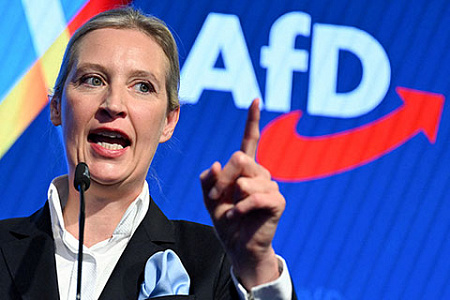
A high-stakes U.S.-Russia summit in Alaska has sent shockwaves through European capitals, with German media outlets analyzing the fallout for international security and Ukraine. According to the magazine Stern, German Chancellor Friedrich Merz highlighted a U.S. readiness to provide Kyiv with security guarantees as the summit’s most critical outcome, insisting that Europe must be a partner in implementing them. The report underscores a growing sense of urgency for Europe to define its own political future in a rapidly shifting geopolitical landscape.
However, Chancellor Merz also voiced significant doubts about the reliability of any such deal, given what he described as a history of unfulfilled promises from Russian President Vladimir Putin. This skepticism is echoed and amplified by prominent German security expert Carlo Masala, who characterized the summit as a “complete success” for Moscow. Masala noted that the meeting’s truncated format—devoid of full delegation talks or a press Q&A—signaled deep disagreements, where Putin seemingly succeeded in imposing his narrative on the conflict, thus preventing the imposition of new U.S. sanctions.
Masala posits that Putin’s strategy is to draw President Trump into a series of bilateral economic talks while indefinitely postponing direct contact with Ukrainian President Volodymyr Zelenskyy. This has forced a moment of reckoning in Europe, which has long focused on keeping the U.S. within the traditional transatlantic framework. In this new context, Masala praised Chancellor Merz’s proactive diplomacy, including hosting Zelenskyy in Berlin to issue a joint declaration demanding a ceasefire and rejecting any agreements about Ukraine made without European and Kyiv’s participation.
In response to these developments, European policymakers are being urged to forge a more assertive and independent strategy. Masala advocates for the consistent application of anti-Russian sanctions, including secondary sanctions against nations facilitating trade with Moscow, citing increased commerce with Kazakhstan as a point of concern. Furthermore, he suggests that Europe could leverage €300 billion in frozen Russian assets to arm Ukraine, thereby bolstering its defense capabilities, and take decisive action against the “shadow fleet” of vessels helping Russia evade trade restrictions.
Meanwhile, reports from U.S. media paint a different picture, with President Trump reportedly viewing the Ukraine war as an “annoying nuisance” and rating his meeting with Putin a “10 out of 10,” driven by a desire for future business with Russia. The perception of a diplomatic win for Moscow is resonating within Germany’s domestic politics, where recent polls show the right-wing populist AfD party surpassing the ruling CDU/CSU bloc. This trend has fueled speculation that the AfD could see major victories in upcoming state and federal elections, fundamentally altering Germany’s political course.
